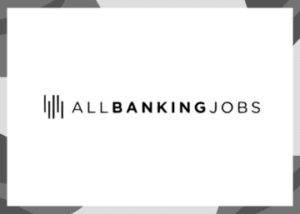Donald Trump’s presidency brought significant changes to the U.S. financial landscape, marked by his “America First” approach and a focus on deregulation. His policies have had a profound impact on various sectors, including investment banking, which relies heavily on government regulations, economic stability, and market dynamics. As Trump continues to shape the economy in his second term, it raises the question: will his policies strengthen or weaken investment banking jobs?
In this blog, we’ll examine how Trump’s economic and regulatory policies have influenced investment banking careers and explore what professionals in the field can expect in the future.
1. Deregulation and Its Impact on Investment Banks
One of Trump’s most notable actions in office was his push to roll back financial regulations, particularly those put in place after the 2008 financial crisis, such as parts of the Dodd-Frank Act. By loosening these regulations, Trump aimed to create a more business-friendly environment that could encourage financial growth, particularly for large financial institutions, including investment banks.
Impact on Investment Banks: The reduction in regulatory oversight allows investment banks to take more risks in areas like trading, lending, and mergers and acquisitions (M&A). This increased freedom could lead to more lucrative opportunities in these areas, enabling investment banks to potentially earn higher profits from activities that were once more restricted.
Impact on Investment Banking Jobs: For investment banking professionals, deregulation can mean an uptick in job opportunities, especially in areas like trading, corporate finance, and M&A advisory. Investment banks may need more analysts, financial engineers, and senior bankers to navigate these newly deregulated markets and seize opportunities that were previously off-limits. However, this could also introduce more volatility, so risk managers and compliance professionals will continue to be in demand to mitigate potential downsides.
2. Tax Reforms and Their Effects on Investment Banking Careers
Trump’s tax reforms, including a reduction in corporate tax rates and incentives for businesses to bring back overseas profits, have had far-reaching effects on global financial markets. These changes could have both positive and negative consequences for investment banks, as lower tax rates could encourage corporate activities like mergers, acquisitions, and capital investment.
Impact on Investment Banks: With companies enjoying lower tax burdens, there could be an increase in mergers and acquisitions, corporate restructuring, and other deal-making activities. Investment banks play a crucial role in facilitating these transactions, meaning more business for banks and greater demand for professionals in advisory roles, M&A teams, and capital markets.
Impact on Investment Banking Jobs: For professionals in investment banking, the tax cuts may lead to more opportunities in M&A advisory, financial structuring, and investment strategy. Bankers who specialize in corporate restructuring or cross-border deals will likely see an increase in business. Additionally, positions in corporate advisory, equity research, and capital markets could also see growth as companies look to optimize their financial strategies in light of the new tax landscape.
3. Global Trade Policies and Investment Banking
Trump’s trade policies, particularly his stance on tariffs and trade wars, have had a direct impact on international finance. The ongoing trade tensions with countries like China, as well as renegotiated trade agreements like the USMCA, have reshaped global markets. While these policies have created uncertainty, they’ve also opened new opportunities for investment banks to advise clients on navigating these changes.
Impact on Investment Banks: The increased focus on trade tariffs and new trade agreements creates a need for investment banks to offer advisory services on the financial implications of these policies. Investment banks are also heavily involved in facilitating cross-border investments and trade finance, which means they need to adjust strategies to help clients manage risks associated with changing trade dynamics.
Impact on Investment Banking Jobs: Investment bankers with expertise in global trade, cross-border transactions, and international finance may find new opportunities as businesses seek guidance on how to structure deals in a changing trade environment. The demand for professionals with experience in global markets and trade finance could grow, especially as companies and investors adjust their strategies to mitigate the risks of trade wars and tariffs.
4. Financial Technology (Fintech) and Its Role in Investment Banking
Trump’s policies have also affected the growth of financial technology (fintech), as his administration has been supportive of technological innovation, particularly in traditional sectors like banking. While fintech is often seen as a disruptor to the financial industry, it also presents significant opportunities for investment banks to modernize their operations and improve services to clients.
Impact on Investment Banks: Investment banks are increasingly partnering with fintech companies to improve their digital platforms, enhance customer experiences, and offer innovative financial products. By adopting new technologies like blockchain, artificial intelligence (AI), and big data analytics, investment banks can stay competitive in an evolving market.
Impact on Investment Banking Jobs: The rise of fintech could change the types of roles available within investment banks. Traditional roles in trading, sales, and financial analysis might evolve to include more tech-focused positions. Investment banks will need professionals who can bridge the gap between traditional finance and emerging technologies, creating opportunities for those with expertise in AI, blockchain, and data analytics. Jobs in fintech partnerships, digital transformation, and technology-focused financial services will be in high demand.
5. Market Volatility and Its Effect on Investment Banking Jobs
While deregulation and tax cuts might encourage more business activities, the policies under Trump’s administration have also led to increased market volatility. Trade tensions, economic uncertainty, and geopolitical risks all contribute to an unpredictable financial environment, which could challenge investment banks and their clients.
Impact on Investment Banks: Market volatility can have both positive and negative effects on investment banks. On the one hand, volatile markets create opportunities for banks to profit from trading and short-term financial strategies. On the other hand, increased risk means investment banks need to manage potential losses and ensure that their clients are adequately protected.
Impact on Investment Banking Jobs: Professionals in risk management, trading, and hedge fund advisory will be in higher demand during times of market volatility. Investment banks will need to strengthen their risk departments to ensure they are equipped to handle market fluctuations. As a result, career opportunities in risk management, trading, and market analysis will likely see growth, as well as positions focused on protecting assets in unstable economic conditions.
6. Long-Term Outlook: Opportunities or Challenges for Investment Banking Careers?
The long-term effects of Trump’s policies on investment banking jobs depend on several factors, including the continued deregulation of the financial sector, the impact of trade policies on global markets, and the rise of technology-driven finance. While deregulation and tax reforms may create new business opportunities in M&A, corporate finance, and trading, there are also risks tied to market volatility, global trade tensions, and regulatory uncertainties.
Impact on Investment Banks: In the short term, the banking industry may benefit from Trump’s pro-business policies, but in the long run, investment banks will need to adapt to a rapidly changing financial landscape. Economic uncertainty and evolving technological trends will continue to challenge traditional banking models, and investment banks will need to stay agile to remain competitive.
Impact on Investment Banking Jobs: For banking professionals, this creates both opportunities and challenges. Those who can adapt to changing market conditions, embrace new technologies, and navigate complex regulatory environments will be in the best position to thrive. As the industry evolves, the demand for adaptable, tech-savvy professionals in risk management, corporate finance, and strategic advisory will grow.
Conclusion
Trump’s economic policies, particularly deregulation, tax reforms, and trade policies, have created a dynamic environment for investment banks and their professionals. While some policies may strengthen the demand for investment banking jobs, such as increased M&A activity and a focus on global trade, others may present challenges, including heightened market volatility and the need for more sophisticated risk management.






